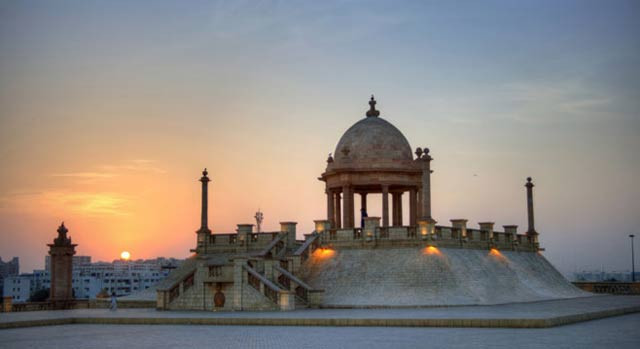Govt’s ill-conceived laws hindering progressive regions
Cities like Karachi need to run like autonomous entities from planning and delivery perspective

Karachi. PHOTO: FILE
They have their fair share of herculean follies and biases, but the country indeed made sustainable progress in constitutionalism under their watch. Now, whether it is the preparation of 1973 Constitution or the historic devolution of powers under the 18th Amendment, the political class led it.
Govt's tight pockets could hamper CPEC projects
Yes, debate can be done on the efficacy or intent of some of the regressive legislation done by the same legislature. We need to take into account the influence accrued by various strains of ultra conservative groups for controlling the political and social discourse in Pakistan.
In many aspects, life has become much difficult for the progressive elements in the country. However, it also remains a matter of fact that the most conducive medium for an effective change remains the political process of slow and irritating democracy.
Thirst of continuous improvement requires buildup of persistent political pressure from the bottom on the higher political echelons. Otherwise, we have seen the similar tendency of power concentration in the hands of small political elite in Pakistan as anywhere else in the world.
Pakistan did make progress on devolution of powers to provinces under the 18th Amendment. Much of the glory for this achievement lies in the determined struggle for political rights by the parties from smaller provinces.
Now, it was expected of provincial governments to be more munificent in further devolution of powers to local levels. It seems that roles have reversed. In place of federal government, the proponents of participatory democracy have to face the provincial political elite intent on concentrating power in their hands.
Provincial errors
Case in point remains the structure of local governments. Under the 18th Amendment, all provinces were required to enact local government act and institute provincial financial award for fiscal devolution.
From the start, provincial governments were never much interested in real transfer of powers to grassroots level. They are using every page in the book to delay or dilute this process.
Under Supreme Court pressure, they have grudgingly hold local bodies elections, but real transfer of power is not seen. It is pertinent to mention here that devolution of power has usually never been a voluntary process in the political history. A positive aspect remains a relentless pressure of different state organs and civil society on the political oligarch resulting in diffusion of power.
Encroachments on 10% of Lyari Expressway hinder progress of construction
Our political elite need to understand here that modern economies required more devolved political structure for optimal outcomes and better integration with world economy. A peculiar case in Pakistani context is that of city Karachi.
With a 22 million population of its buildup urban area, Karachi holds over 10% of the country’s population. It is the 7th most populous city of the world and on standalone basis, Karachi would have been the 58th most populous country behind Sri Lanka.
With two major seaports and an international outlook, it is the main economic window of Pakistan to the world. Its economic dynamism is reflected in the continuous influx of population from hinterland for earning opportunities despite its dilapidated infrastructure and precarious security situation.
Performance of governance could be gauged from the fact that international ranking of Karachi on A T Kearney’s Global Cities Index has declined from 57th in 2008 to 85th position in 2016. On the livability index, issued by Economist Intelligence Unit, Karachi has remained in the bottom seven of the 140 cities ranked. And indeed the biggest sufferer of these dire straits is not Karachi, but the province of Sindh.
The economic pull of the city would have taken Sindh to places, just as opening up of Shenzhen city in China has an immense spillover effect on Guangdong province’s other cities.
Instead of squeezing the local government in Karachi of any semblance of administrative and fiscal autonomy, provincial government should think along modern lines of governing metropolitan economies.
Political institutions are far more important for the sustainable economic growth of any region. It is not only Karachi that is in urgent need of being run like an autonomous entity from planning and service delivery perspective, but other major urban centers, as Hyderabad, Sukkur and Larkana, also require the same leeway.
Only then, Sindh will be able to optimise its economic potential.
The writer is a director in Policy Research Institute of Market Economy
Published in The Express Tribune, January 23rd, 2017.
Like Business on Facebook, follow @TribuneBiz on Twitter to stay informed and join in the conversation.


















COMMENTS
Comments are moderated and generally will be posted if they are on-topic and not abusive.
For more information, please see our Comments FAQ